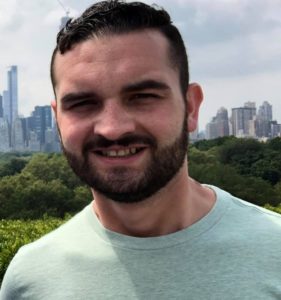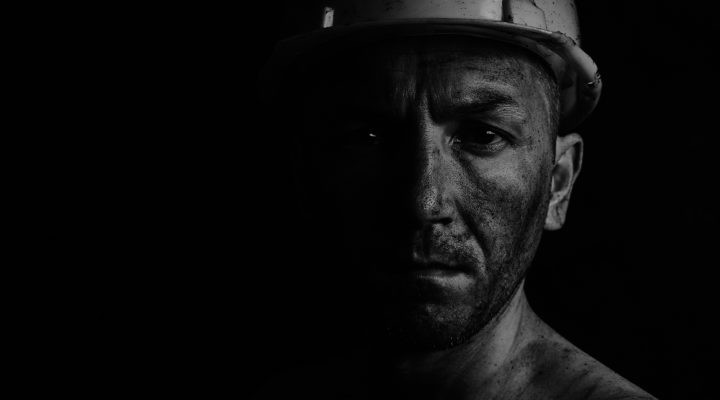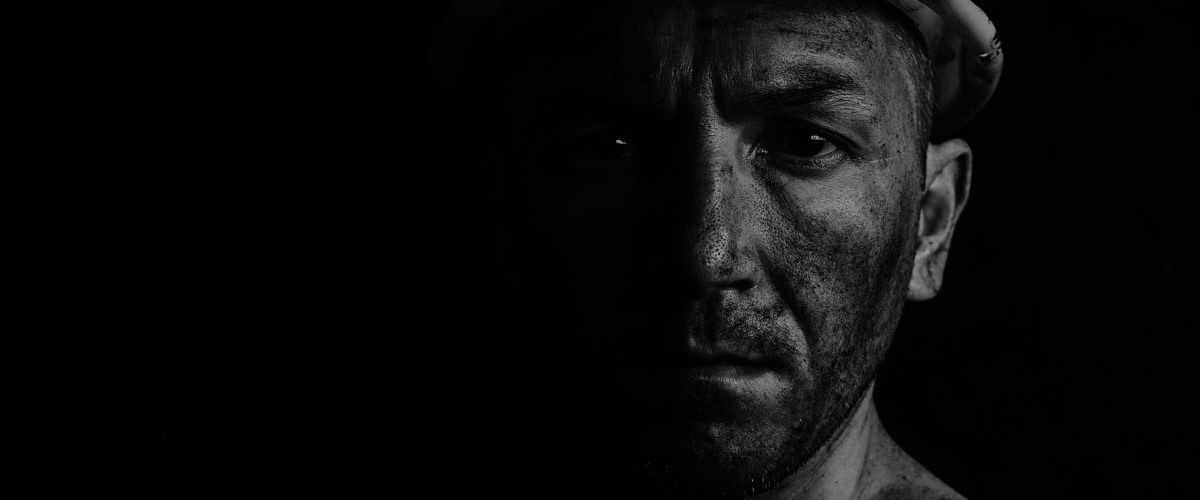Blue faded overalls, a sharp Case knife, a gold Timex watch and a green oxygen tank. For about as far back as I can remember, those were the essentials for my Pap.

Jordan Conley
Pap mined coal underground in Eastern Kentucky for 27 years. He never met a stranger, he spoke with a booming voice, and he could spin a story like a wagon wheel. The last years of Pap’s life were spent going from doctor to doctor as he battled heart disease, black lung and, ultimately, lung cancer. The most obvious sign of the myriad of issues Pap faced was his persistent inability to breathe. This only worsened with time, to the point to where he couldn’t walk from the kitchen to the bedroom without being completely out of breath.
I can still hear him saying, “Bub, I’m smothering to death.” Finally in 2017, Pap died.
“I can’t breathe” just sounds different in 2020. George Floyd said, “I can’t breathe” more than 20 times before he died. Last year, Elijah McClain was on his way home when he found himself being held on the ground by police officers, crying out, “I can’t breathe” before he died. In March, after Breonna Taylor was shot in her own home by Louisville police officers, she fell to the ground, coughing, gasping for air, unable to breathe. She also died.
The COVID-19 pandemic in the U.S. has left thousands fighting for their lives. Infected patients battle a disease with no cure while hooked to ventilators. They cannot breathe, and many continue to die.
Our atmosphere is full of air. We, along with all of creation, use that air, drawing it in for our next breath, then breathing out. As we exhale, our humanity travels out of our bodies into another body, or animal, or tree. This cycle has repeated itself for billions of years but even as that cycle continues fellow humans and fellow members of creation are crying out to us saying, “I can’t breathe.”
“People are suffocating in our world, succumbing to the smothering grasps of racism, classism and corporate greed.”
People are suffocating in our world, succumbing to the smothering grasps of racism, classism and corporate greed. COVID-19 has further illuminated the immorality that props up the economy of consumption — a force that churns onward devouring the poor, the marginalized, those without wealth and influence.
That’s why my Pap and thousands of other coal miners went to work every day wearing masks that ultimately wouldn’t protect them from black lung. That’s why the next factory that gets built in your city will be near the urban core of its Black population dubbed “the industrial” part of town. That’s why thousands of “essential workers” are being exposed to COVID-19 right now.
In a world with plenty of air, the reality is that people are dying because they simply cannot breathe.
Willie Jennings calls the windy descent of the Spirit in Acts 2, “the revolution of the intimate” signifying, “the beginning of a community broken open by the sheer act of God.”
The fresh air that blew among the believers inspired them to live in genuine community together. Common needs were met, everyone had enough, and everyone could breathe. Scripture says they, “had all things in common, they would sell their possessions and goods and distribute the proceeds to all, as any had need.”
“Once the Spirit came, they lived differently. They lived with an awareness of one another, knowing that each life mattered.”
Perhaps the most revolutionary aspect of the Spirit’s descent wasn’t the gift of tongues, or the number of people added to the church rolls after Peter’s sermon. Perhaps the most revolutionary aspect of the Spirit’s descent is found in how they lived with one another after the crowds left and after the tongues of fire ceased. Once the Spirit came, they lived differently. They lived with an awareness of one another, knowing that each life mattered. An individual need became everybody’s need. Nobody got left behind.
What does it look like to live in a community that God is breaking open?
Can we imagine a community where corporations make smaller profits in order to provide adequate PPE for their “essential workers” just because it is the right thing to do? A community where people who look like George Floyd or Elijah McClain can walk down the streets of any city without fear? A community where Breonna Taylor can sleep soundly in her own bed? A community where my Pap didn’t have to sacrifice his health for cheap electricity? What sum on your electric bill is worth the price of a healthy lung?
The economy of consumption never was designed around genuine community. Consumption commandeers for itself the talents of people like Breonna Taylor and people like my Pap. The need to satisfy the economic appetite was used to excuse slavery. The need for inexpensive electricity was used to excuse the safety of frontline workers like Pap. Today, it is being used to excuse the exposure of essential workers to COVID-19. After all, the economy depends on essential, or to speak plainly, expendable workers. But, when the Spirit comes, none of us is expendable.
Can we imagine living in a community broken wide open by the Spirit of God?
We’ll know we’ve conspired together with the Spirit in this holy work when we establish communities where the humanity of another is more important than “the bottom line,” communities where fellow human beings are irreplaceable or as the Psalmist writes, “fearfully and wonderfully made.” Communities where Black lives really do matter and where black lung is no more. Communities where wealth, race and class do not determine the amount of air you get to breathe.
That community is a place that’s been broken open by God, broken open for life. In that community, everyone can breathe. May we all breathe in, breathe out, and live in the community God is creating.
Jordan Conley hails from Eastern Kentucky and now lives in Louisville, where he’s a Baptist minister, member of Crescent Hill Baptist Church, a student at Baptist Seminary of Kentucky and funeral director.


